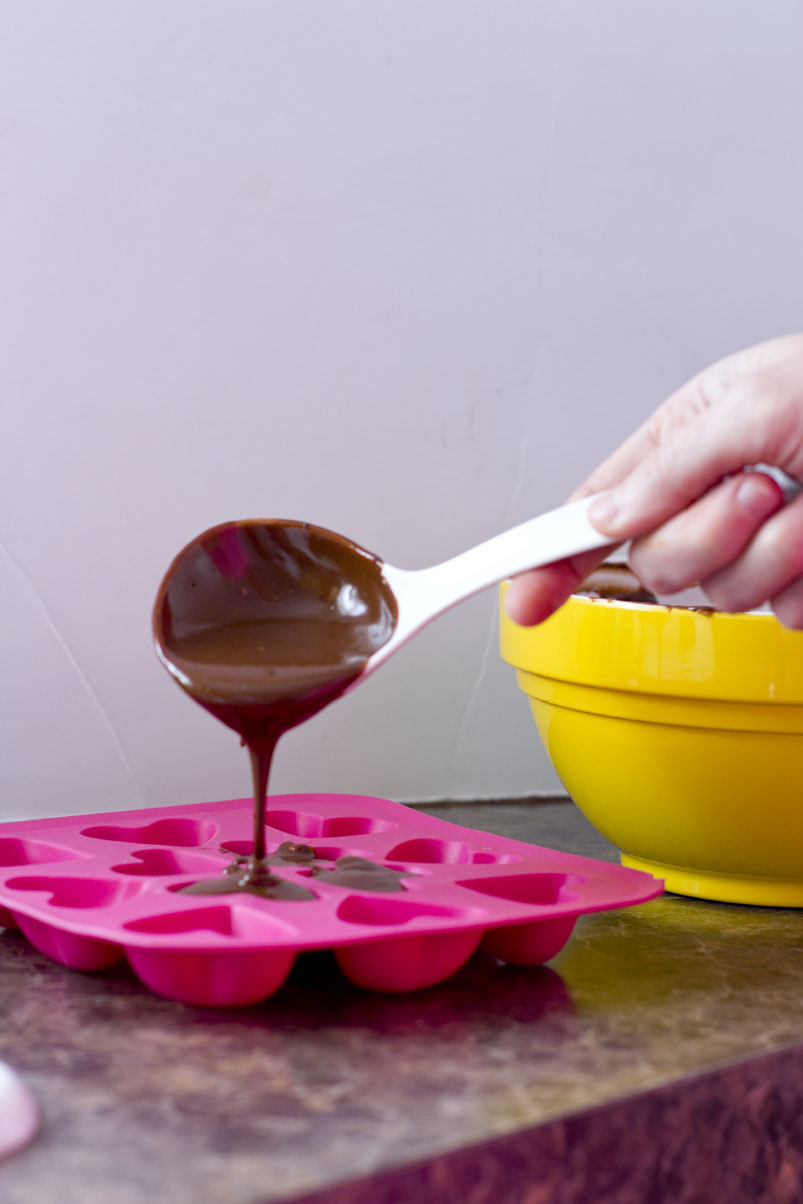Having a mother who cares to do her own research on products before she blindly buys them has been a great asset to me. Whenever I used to wonder about a new product I saw in the store, I would call my mom to see what she knew about it. Now, I see something new and do my own research. I believe that knowledge truly is power, and until we can take responsibility for our own health, we will remain floundering and making ourselves sick in the process. I strongly encourage people to do their own reading; to find things out on their own. That is how you make a believer — by leading a person to the information and having them find out on their own.
With that being said, let’s talk fat. Prior to a few years ago, fats were confusing to me. I remember being in high school when the Trans Fats phase began, and once again, I asked my mom what the scoop was. Then everything went to low-fat or NO fat (how absurd). It seemed like a good idea, until I realized that all of the chemicals being shovelled in to replace the “fat” were toxic. In a society confused by fat, there is a shimmer of hope. There ARE good fats.
I want to introduce everyone to Coconut Oil (mmm . . . doesn’t it sound delightful?). It’s showing up everywhere, and some might feel it’s just a fad, similar to Agave, where more research will come out later to prove that it’s actually not as good for us as we thought. I don’t think that’s true. I have done a lot of reading on this subject since my first glimpse at the words, “Coconut oil” two years ago in the book, Nourishing Traditions. Sally Fallon gives a great introduction to fats in her book, and I could not put it down because my mind was reeling from what she had to say. Since reading her words, I have found many other sources, including numerous peer-reviewed articles citing the benefits of coconut oil.
Here is a (somewhat) brief over view of the benefits of this lovely oil:
• Coconut oil has a high smoking point and is very stable, meaning you can cook with it at high temperatures and it won’t break down into free radicals.
• Coconut oil is a medium fatty acid chain. This means that after these fats are digested they go into the liver and are immediately available for our body to use as energy.
• Because of the above fact, coconut oil is used to promote weight loss. It does not circulate in the blood stream like other fats. The fats in coconut oil are treated like carbohydrates in the body, being used for energy instead of being stored.
• Coconut oil increases metabolism, allowing the body to burn calories more quickly, which also promotes weight loss.
• Coconut oil is solid below 76 degrees (F) and liquid above 77 degrees. Depending on your climate it may vary between the two states, but that will not harm the oil.
• Coconut oil does not need to be refrigerated like some other sensitive oils (flax, some olive oils, etc).
• Coconut oil contains lauric acid, which is wonderful for the body. Among other things, lauric acid rids the digestive tract of harmful viruses, yeast, bacteria, and fungi. Lauric acid is the substance found in breast milk that protects the baby from getting sick while they are young.
• People who experience digestive issues including gas, bloating, cramping, diarrhea and constipation can benefit from taking a few tablespoons of coconut oil each day. It will help rid the intestines of toxins and bacteria and restore the beneficial flora.
• Coconut oil helps to keep the body balanced, which allows all organs to function properly, and in turn leads to weight loss.
• Coconut oil contains fats that help the body with the absorption of vitamins, amino acids, and minerals.
• Coconut oil can be put directly on the skin to help soothe, protect, nourish, and heal. It can be used as sunscreen, and a diet high in coconut oil is proven to prevent sun damage.
• Coconut oil can be used as a conditioner for your hair. Rub in a couple of teaspoons before going to bed and wash out the next morning for healthy, shiny hair. It also controls dandruff.
If that doesn’t convince you that you need to incorporate this oil into your life, I don’t know what will. The benefits of this oil are remarkable. It can be used to cook, bake, as a spread for toast, in smoothies, on your skin, in your hair, etc. There are many ways to get this healthy fat into your body.
A word of caution: because coconut oil is relatively “new” to our culture, it seems to be popping up everywhere. You can find it in almost any grocery store, but beware. When buying Coconut oil, you want to get the best quality you can find. Look for “Organic,” “Expeller pressed,” “Extra virgin” coconut oils. You will get what you pay for. Don’t go cheap here, make sure what you are buying is worth the money. All of the benefits listed above will be null and void without high quality oil. I have used three different brands, and thus far I have really liked the Nutiva brand, as well as Nature’s Way. They both smell amazing and are high quality oils. You can find them through Amazon or Vitacost for a good price. Nature’s Way is sold at Fred Meyer, but I haven’t noticed it anywhere else. I bought the Spectrum Naturals brand at a local grocery store about a year and a half ago and it was awful. There wasn’t even a hint of coconut smell to it, and I didn’t like it.
Do your research, find what looks good, and try it out. Try a few brands if you want. The point is, TRY IT.







so….just a scoop in a smoothie? in place of butter in baking? what do I DO with it? I don't use a lot of oil/fat (a little butter here, a little olive oil there) normally, so I should look for places to use more?? You are the only research I read, so tell me more!
Yes, USE IT MORE. It is so good for you. Add a couple of Tablespoons to a smoothie, either liquid or solid. In baking, when a recipe calls for oil, just add coconut oil (liquid). To get it liquid, just put it in a bowl with warm water (or the sink). You can use it in place of butter for sure. Use it to grease your pans, muffin tins, etc. Drizzle onto veggies for roasting, or in the pan for cooking meat. The possibilities are endless.
Do you ever fry in coconut oil? The smoke point for extra virgin coconut oil is actually 350 degrees…not much hotter than butter, and cooler than both EV olive oil and every variety of canola. Don't get me wrong, I love coconut oil, but it's interesting that the companies producing it claim a high smoke point when it's actually relatively low. Then again I haven't tried frying yet so I don't know from personal experience, just from Annie's (and a chart on wikipedia:
http://en.wikipedia.org/wiki/Smoke_point
I have seen conflicting data on the smoke point (especially that of EV olive oil), but I actually don't fry at high temperatures anyway, so 350 is just right for me to use in all of my baking and pan frying at low temps. I stir-fried some asparagus for lunch today with it, and had the dial on about medium heat. It didn't smoke, and it was delicious. I got the “high smoke point” from reading about what a stable oil it is, and how you can use it for baking just like butter. The only real way to tell would be to pull out a thermometer, but I just try to stay away from really high temperatures when cooking on the stove anyway!
What is this about Agave? Is there something I missed? Is it not actually a good sweetener? I don't use it, I'm a fan of maple syrup myself (even though someone recently told me that it wasn't any different than having refined sugar…) but I know a lot of people who swear by it so I am just curious.
I know coconut oil is so good for you. We use it as a sunscreen. I just can't stand the taste or texture. I used to take a Tablespoon of it before every meal followed by a Tablespoon of Apple Cider Vinegar. I don't mind Apple Cider Vinegar but I can't stand coconut oil now. Even the smell makes me sick. I guess I'm just going to have to suck it up…
Ashley- there has been a lot of evidence showing that agave has one of the highest levels of fructose, even more than high fructose corn syrup. It isn't a “natural” sweetener as it claims either. I have a post dedicated to natural sweeteners and their counterparts, but until then, here's an article to read: http://www.foodrenegade.com/agave-nectar-good-or-bad/